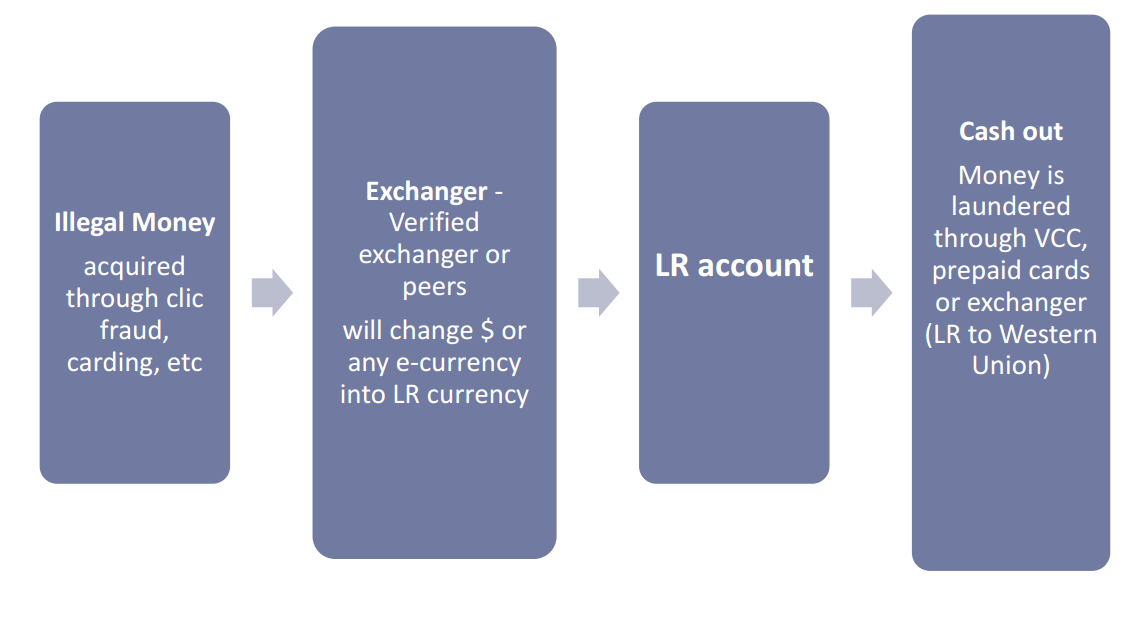The Secrets of Online Money Laundering
Money laundering is increasingly becoming a cybercrime. Gone are the days when the bad guys would pop down to the casino and hope to convert their loot into a clean win on the roulette table. And less popular is the old scam of taking out an insurance policy and then redeeming it at a discount.

Instead, modern criminals are focusing on the internet. And the opportunities for turning dirty money into a spotless shade of green are plentiful.
So today, Jean-Loup Richet, a research associate at the ESSEC Business School just outside Paris, surveys the new techniques that criminals are using in a report written for the United Nations Office on Drugs and Crime. And he reveals just how creative and opportunistic money launderers have become.
Researching these kinds of operations is inherently difficult. As Richet puts it: “Bad guys and their banks don’t share information on criminal pursuits.“
Instead, he has had to cast his net a little wider. Richet’s main sources of information are online hacker forums where anonymous criminals exchange tips on the best ways to launder money and are surprisingly frank about their methods.
In some ways, many of these methods are unsurprising. A common approach until recently was to use the Costa Rican digital currency service called Liberty Reserve. This converted dollars or Euros into a digital currency called Liberty Reserve dollars or Liberty Reserve Euros, which could then be sent and received anonymously—one of the few services to allow this. The receiver can then convert the Liberty Reserve currency back into cash for a small fee.
In May this year, however, the US authorities shut down the service and charged its founder and various others with money laundering.
But Richet says the closure of Liberty Reserve is unlikely to end these practices because there so many alternatives. These include WebMoney, Bitcoins, Paymer, PerfectMoney and so on.
Another increasingly common way of laundering money is to use online gaming. In a growing number of online games, it is possible to convert money from the real world into virtual goods services or cash that can later be converted back into the real thing. “Popular games for this type of scam include Second Life and World of Warcraft,” says Richet.
Then there are the money mule scams. Most people will be familiar with the spam in which a high level official from a developing country asks your help to transfer significant amounts of money and are prepared to pay well for your services. But first, they require your banking details which they promptly use to empty your account and then disappear.
In a growing number of cases, however, the criminals do actually transfer large amounts of money into your account and then ask you to forward it. However, since this involves stolen funds that are being laundered, you are accountable for the crime.
Another scam is to offer people jobs in which they can make a substantial income working from home. However, the ‘job’ involves accepting money transfers into their accounts and then passing these funds on to an account set up by the employer. In other words, money laundering!
And these are just a few highlights from Richet’s comprehensive trawl. Part of his goal with this research is to make people aware of the kinds of scams that go on so that they are less likely to fall victim. “As individuals, it is our responsibility to stay informed, and always be aware of the methods these criminals may use to involve us in their laundering schemes,” he concludes.
A worthy goal no doubt but one that also publicises the schemes for other criminals to copy. Whether this is a risk worth taking is hard to gauge. Your views in the comments section please.
Ref: arxiv.org/abs/1310.2368 : Laundering Money Online: a Review of Cybercriminals’ Methods
Deep Dive
Policy
Is there anything more fascinating than a hidden world?
Some hidden worlds--whether in space, deep in the ocean, or in the form of waves or microbes--remain stubbornly unseen. Here's how technology is being used to reveal them.
A brief, weird history of brainwashing
L. Ron Hubbard, Operation Midnight Climax, and stochastic terrorism—the race for mind control changed America forever.
What Luddites can teach us about resisting an automated future
Opposing technology isn’t antithetical to progress.
Africa’s push to regulate AI starts now
AI is expanding across the continent and new policies are taking shape. But poor digital infrastructure and regulatory bottlenecks could slow adoption.
Stay connected
Get the latest updates from
MIT Technology Review
Discover special offers, top stories, upcoming events, and more.